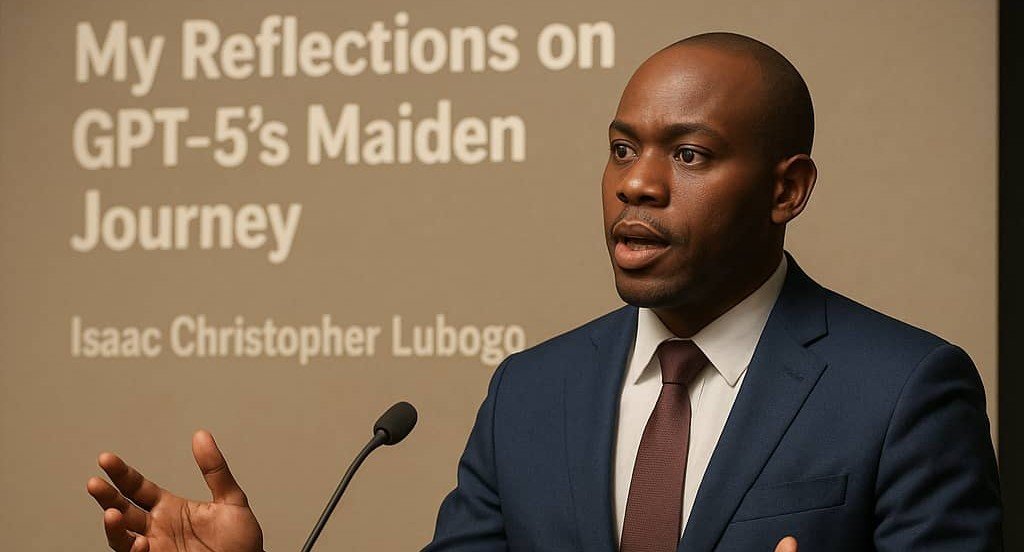By Isaac Christopher Lubogo
On August 7, 2025, a quiet but profound shift occurred in the digital landscape. OpenAI released GPT-5—not as an abstract promise of “AI someday,” but as a present, living tool already shaping how we think, work, and relate to knowledge itself.
It was not just the launch of a model. It was the public’s first handshake with an intelligence capable of meeting you in the marketplace of ideas, listening like an old friend, reasoning like a scholar, and executing with the precision of a master craftsman.
The Intelligence We Have Dreamed About
GPT-5 is not merely faster or more accurate than its predecessors—it is a deliberate leap toward human-level adaptability. With the ability to switch seamlessly between instant answers and deep, structured reasoning, it has made “thought on demand” a reality. Whether one is drafting a legal brief in Kampala, fine-tuning a health intervention plan in Nairobi, or conceptualizing a start-up pitch in Berlin, GPT-5 now sits beside the user like an invisible co-architect.
Its multimodal brain—capable of reading, seeing, hearing, and responding—dissolves the barriers between text, image, sound, and code. What once required several human experts can now begin with a single prompt.
A Tool for the Mind, Not a Threat to It
In Uganda, where access to seasoned mentors is often limited by geography and economics, GPT-5 becomes more than a convenience—it is a democratizer of wisdom. It can train a rural teacher in pedagogy, guide a medical student in anatomy, advise an entrepreneur on cross-border tax law, or even draft a parliamentary bill with the elegance of constitutional clarity.
Yet, we must not confuse its capability for omniscience. GPT-5 is brilliant but not infallible. The responsibility remains with us—to frame the right questions, to verify its counsel, and to integrate its insights into the rich tapestry of human judgment.
Why This Matters for the Human Story
I believe GPT-5 will not merely change how we work—it will quietly alter how we perceive our own cognitive limits. The idea that you must wait weeks for a research report, spend hours drafting an investment proposal, or wade through trial-and-error coding is becoming obsolete.
If harnessed with wisdom, GPT-5 will:
Collapse the distance between idea and execution.
Give small voices a global microphone.
Turn time scarcity into time abundance for problem-solvers.
However, if used without moral compass, it can equally accelerate disinformation, plagiarism, and intellectual laziness. The very blade that can carve solutions can also wound the truth.
The Dawn of Cognitive Companionship
When I first engaged GPT-5, I was struck not just by its answers, but by its conversation. It listened. It challenged assumptions. It adapted to my style. It felt less like querying a database and more like engaging a colleague who knew when to speak plainly, when to philosophize, and when to calculate in silence.
For me, this marks the beginning of cognitive companionship—where AI is not just a servant of commands, but a partner in intellectual growth.
Closing Thought
In my lifetime, I have seen inventions that moved the hand—steam engines, typewriters, electric light. GPT-5 is an invention that moves the mind. Its maiden use is our invitation to step into a world where intelligence is not bound by one head or one desk, but shared like air—present, immediate, and transformative.
And just like every great tool in history, the question is not whether it will change our lives. It already has. The real question is: Will we rise to match its potential with our own wisdom?
# Suigeneris








